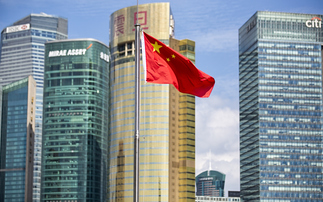A spate of dividend cuts or postponements has raised concerns among investors globally. Fidelity Investment Directors, Catherine Yeung and Matthew Jennings, alongside Jochen Breuer, manager of the Fidelity Asian Dividend Fund, look at the forces driving this, while also highlighting some bright spots in China where a number of companies are maintaining - or even increasing - payments to shareholders
In normal times, dividend cuts can signal a company in distress. But when it's the economy itself that's in distress, cutting or delaying dividend payments can be a sign of corporate prudence. Companies around the world are tightening purse strings as they brace for a global recession in the wake of the Covid-19 pandemic. In the 2008 global financial crisis, dividends were cut by over 20% on average, a figure likely to be more than doubled in this downturn.
Some companies are acting on instructions from their regulators while others are responding protectively to an actual or feared reduction in cashflows. And some others are delaying because social distancing means they've been unable to hold shareholder meetings to formally approve their payouts.
Equity is a long duration asset and a single year's dividend is not a major part of the intrinsic value of a business. In this environment, where indiscriminate selling is producing huge dislocations to valuations, being able to identify the well-run and well-capitalised companies is key, as these are likely to emerge in a position of relative strength on the other side of this crisis.
It is also important to recognise that not all companies are trimming dividends. Many firms are going ahead with payments as planned, while some have even announced increased payouts - a contrarian trend that is particularly notable in China.
Contrarian China
Asian dividend stocks have outperformed the broader region after previous sell-offs. And within greater China, many big companies were steady dividend payers through previous rounds of market turbulence, including firms like chipmaker TSMC (which paid out US$8.4bn in dividends last year), CK Infrastructure, developer Sun Hung Kai Properties, or conglomerate Guangdong Investment.
Asian dividend stocks have outperformed in previous market rebounds
Source: Fidelity International, Bloomberg, April 2020. Relative performance of MSCI Asia Pacific ex Japan High Dividend Yield Index vs. the MSCI Asia Pacific ex Japan Index.
There has been a particular focus among companies from mainland China, specifically those that count the state as a major investor, on increasing dividend payouts in recent years. This follows sustained calls by the government to increase shareholder returns.
Recent examples include telecom giant China Mobile; Shenhua Energy, the country's biggest coal producer; and state-backed property developer China Overseas Land and Investment, or COLI. All three companies recently announced dividend increases.
Despite a 9.5% net profit decline, China Mobile slightly increased its full-year dividend payment for 2019 by 3.4%, while assuring investors that it will maintain a stable dividend for the full year of 2020. The management cited shareholder returns as the reason for its decision to boost the payout from last year. Shenhua, sitting on a large cash pile, bumped up its payout ratio to 60% from 40%, while pledging a floor of 50% for 2020 and 2021. And developer COLI proposed a final dividend that lifted its payments for the full year by 13.3% slightly more than the annual increase in net profit.
China's securities regulator has repeatedly called for greater rewards for shareholders in the form of dividend payments, as the government seeks to encourage fundamental investing as part of a drive to reform the stock market.
Generally, state-owned enterprises (SOEs) with strong cashflows are more likely to heed the call. Their cash distributions help to boost the coffers of various government units that hold SOE shares, especially in a slowing economy. Big dividend payers tend to include the largest SOEs, which are often financial firms, energy producers and real estate developers with cyclical profits. Many of them still have strong balance sheets this year that allow resilient distributions.
Nevertheless, profit outlooks for Chinese companies in general remain challenging, with the Covid-19 outbreak hurting both exports and domestic consumption. Many other Chinese firms with weak cashflows are cutting or suspending dividends, just like their global peers.
Summary
Markets have been moving through an unprecedented crisis and we expect more near-term disruption.
It is important to recognise that this shouldn't alter the long-term outlook for otherwise solid businesses and also not all companies are responding to this pressure in the same way. The key differentiator for most company managements will be the resilience of their cash flows, strength of their balance sheets and sustainability of their dividend policies.
Read the full whitepaper
This article is an excerpt from a longer Fidelity white paper on dividend cuts which you can access by clicking here.
Related funds
Fidelity Asian Dividend Fund W-INC-GBP
Fidelity Asian Dividend Fund W-ACC-GBP
Fidelity Global Dividend Fund W-INC-GBP
Fidelity Global Dividend Fund W-ACC-GBP
Benefit from the latest market commentary from Fidelity CIOs and portfolio managers:
- Perspectives: weekly insights from experts spanning the breadth of our investment capability
- Live webcasts: live and interactive webcasts with Fidelity CIOs and portfolio managers
- On-demand webcasts: listen again to any of Fidelity's latest webcast recordings
- Insight emails: sign-up to Fidelity's email newsletters from our investment experts
IMPORTANT INFORMATION
This content is for investment professionals only and should not be relied upon by private investors.
The value of investments and any income from them can go down as well as up and you may not get back the amount invested. Past performance is not a reliable indicator of future returns. Investors should note that the views expressed may no longer be current and may have already been acted upon. The value of investments in overseas markets may be affected by changes in currency exchange rates. Investments in small and emerging markets can be more volatile than other more developed markets. Reference to specific securities should not be construed as a recommendation to buy or sell these securities and is included for the purposes of illustration only. Investments should be made on the basis of the current prospectus, which is available along with the Key Investor Information Document and current and semi-annual reports, free of charge on request, by calling 0800 368 1732. Issued by Financial Administration Services Limited and FIL Pensions Management, authorised and regulated by the Financial Conduct Authority. Fidelity, Fidelity International, the Fidelity International logo and F symbol are trademarks of FIL Limited. ED20-124














